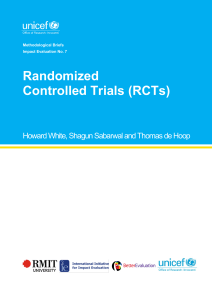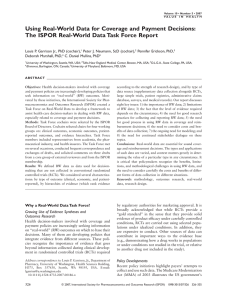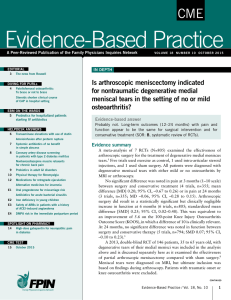Evidence-Based Mental Health PSYC 377
advertisement
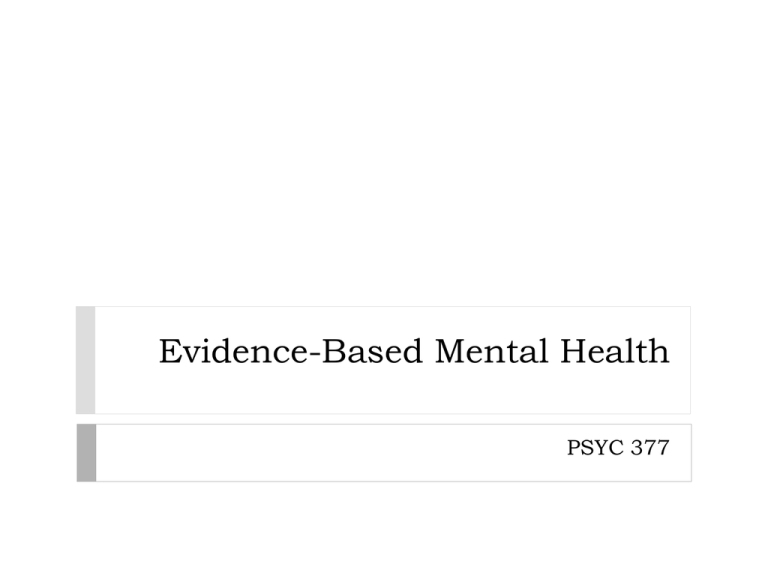
Evidence-Based Mental Health PSYC 377 Structure of the Presentation 1. 2. 3. Describe EBP issues Categorize EBP issues Assess the quality of ‘evidence’ by review of research methods Why do we need evidence? Policy need to be informed by evidence on the SIZE and NATURE of the mental health problems AND what is known to be EFFECTIVE Evidence-based Practice Roots in Evidence-based Medicine – assessing the effectiveness through experimental controlled trails Evidence can come from sources such as trials to surveys to focus groups, sometimes it might come to light as a result of public or media pressure or both Filtering ‘good’ and ‘bad’ information is CRITICAL Evidence-Based Practice Process of using the best available scientific evidence to understand what works best Process of systematically finding, appraising, and using recent research results as the basis for making clinical decisions Use of clinical interventions that have been : Evaluated by well-designed clinical research studies Published in peer-reviewed journals Consistently found to be effective RCTs Evidence: Randomized Control Trials (RCTs) as the ‘gold standard’ for providing evidence In mental health, RCTs target understanding causal relationships between variables (what causes schizophrenia?) RCTs: Randomized controlled trials are used to examine the effect of interventions on particular outcomes such as death or the recurrence of disease. RCTs are sometimes not feasible, necessary, appropriate, or even sufficient: Patients are randomized to receive or not receive the intervention Any significant differences between groups in the outcome event can be attributed to the intervention and not to some other unidentified factor. Study the effect of a risk factor such as smoking cannot ethically be addressed Randomized controlled trials are not appropriate for cancer screening, a situation in which the outcome is rare and frequently occurs only after a long delay. Before doing RCTs, smaller studies should be used to examine the predictive value of the test against some accepted standard. Quasi-Experimental Research Similar to RCTs but they specifically lack the element of random assignment to treatment or control. In quasi-experimental designs the researcher controls assignment of patients to the treatment condition Some criterion other than random assignment might be used (eg. an eligibility cutoff mark) Evidence-based Mental Health Practice Increase empiric basis and effectiveness of clinical practice by helping clinicians and clients select the most accurate , valid information Help clients identify their own strengths to alleviate or diminish symptoms or states Levels of Evidence 1. 2. 3. 4. 5. 6. Transparent results (peer-reviewed and accessible to public) Based on empiric research protocols (randomized control trial, quasi-experimental studies) Used steps that are standardized and clearly explained so that it could be repeated Produce replicable results Fidelity scale (showing the research was replicated in similar way to the original research) Produce meaningful results/outcomes A-B-C-D Level of Evidence (WHO) Type A: What works is known, how it works is known, repeatability is universal Type B: What works is known, how it works is known, but repeatability is limited Type C: What works is known, repeatability is universal but how it works is not known Type D: What works is known, how it works is not known, repeatability is limited Note: Health promotion is based on Type B level of evidence. Research Methods and Levels of Evidence Level 1: Systematic Reviews using meta-analysis, 2 randomized control trials Cohort or case control studies National consensus panels on RCTs Level 2: No meta-analysis One RCT or research showing dramatic effect or national consensus panel recommendation based on controlled studies Level 3: Quasi-experimental: Uncontrolled trial or observational study with more than 10 persons Descriptive studies Expert consensus guidelines Levels of Evidence Level 4 Level 5 Clinical opinion Non-controlled studies without comparison groups No consistently positive measured outcomes Not research based Level 6 Anecdotal case reports Unsystematic clinical observation or correlational studies Descriptive reports Case studies Single subject designs Demonstrates consistently bad outcomes for a particular population Level 7 Emerging best practices or promising practices Group Exercise Where to go for Mental Health Research Resources Websites: Cochrane Collaboration (Mental Health) Campbell Collaboration Center for Evidence Based Medicine PubMed Clinical evidence National Health Society for Reviews and Dissemination Inventory of quality measures for mental health care World Health Organization Reports Draft of guidelines for systematic reviews of health promotion Global Program on Health Promotion Effectivenness Guidelines: Expert Consensus Guidelines EBP Practice Guidelines
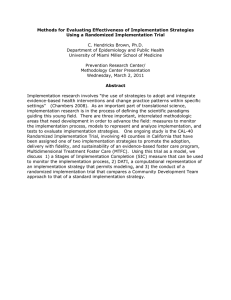
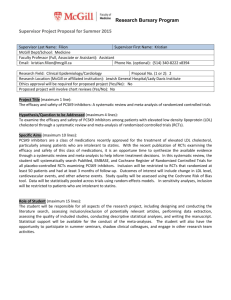
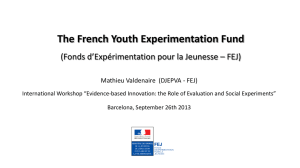

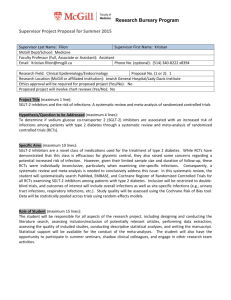
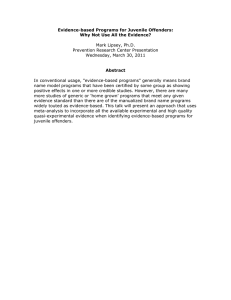
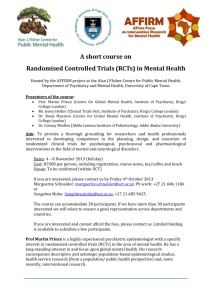
![Gunning presentation [PPTX 699.68KB]](http://s2.studylib.net/store/data/014976236_1-85e3268015b810d2235568b8329b35de-300x300.png)

